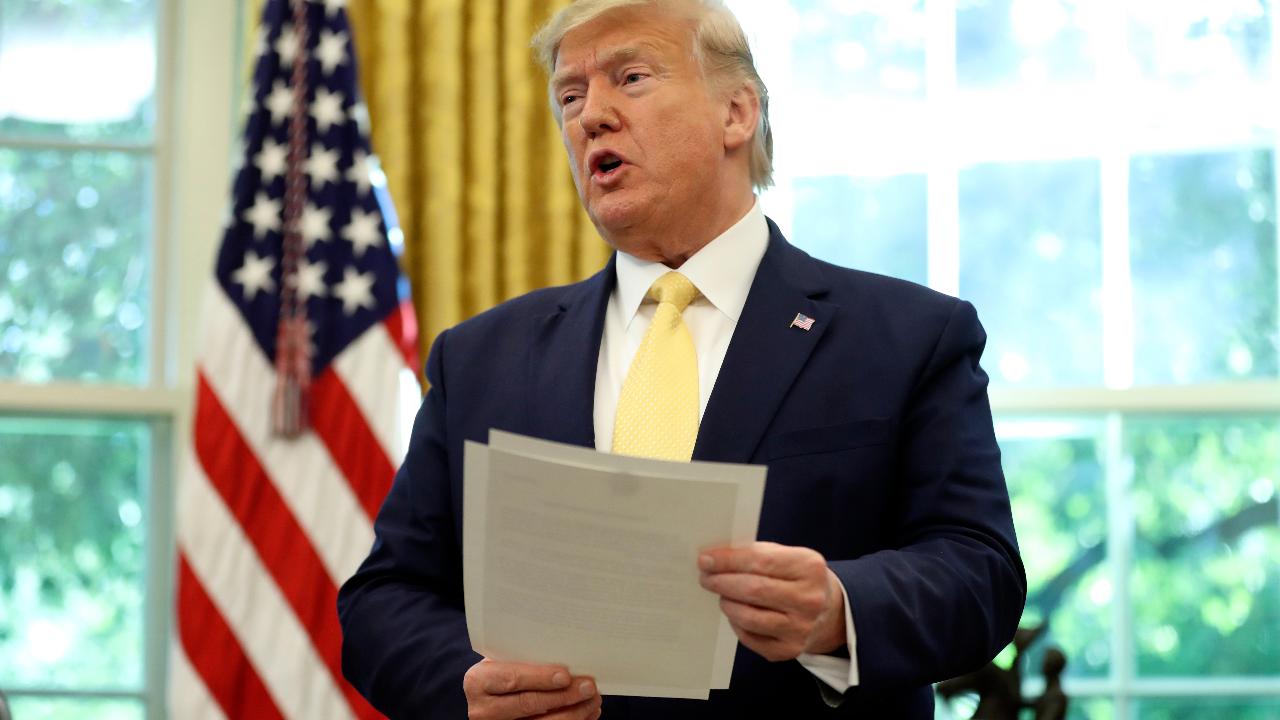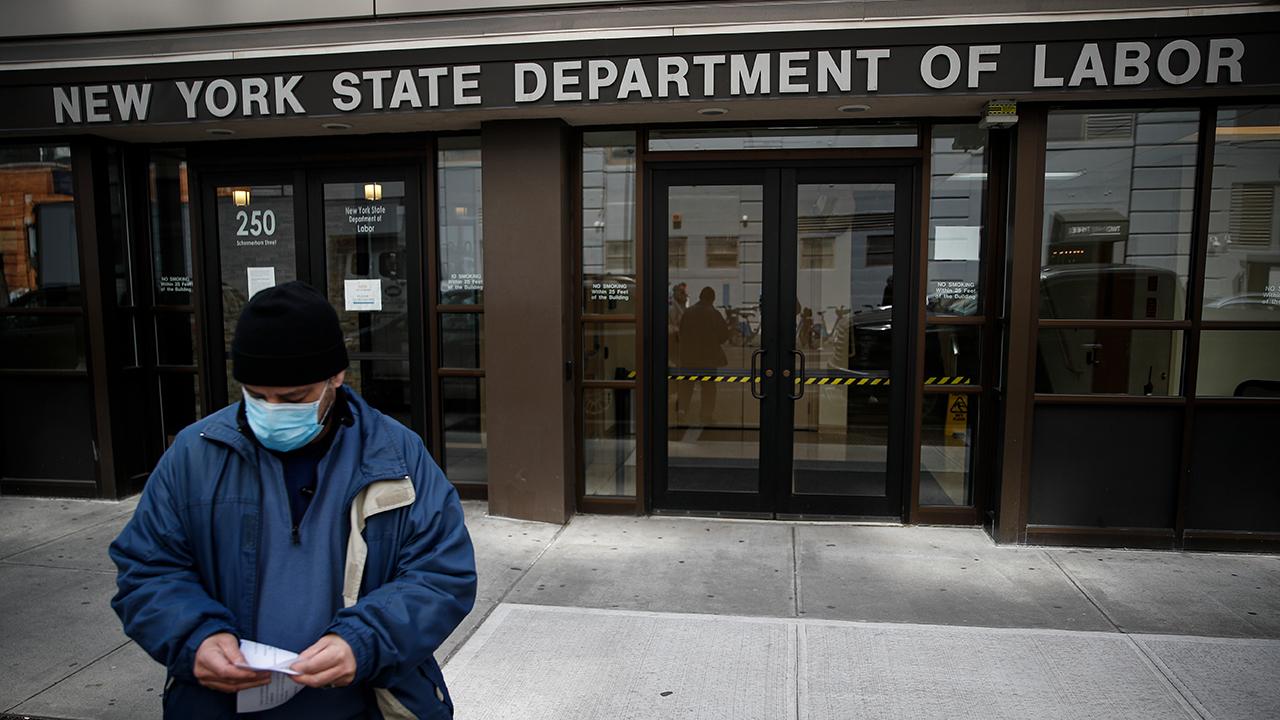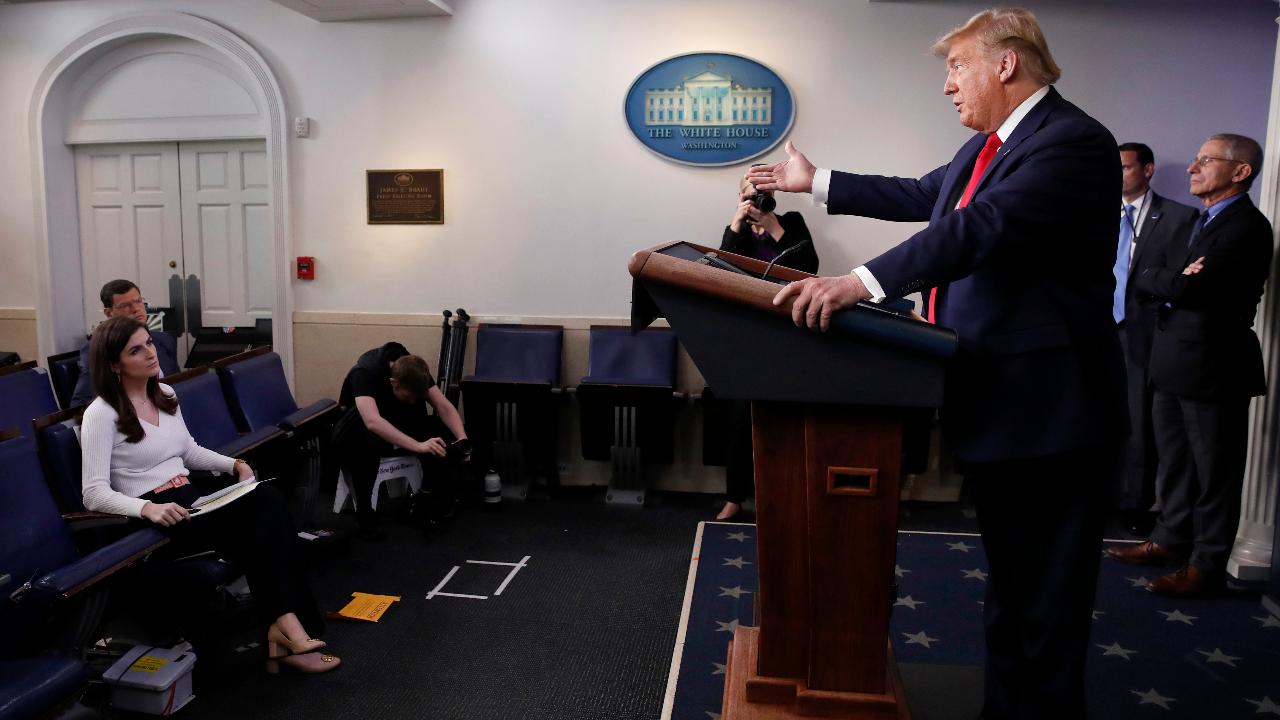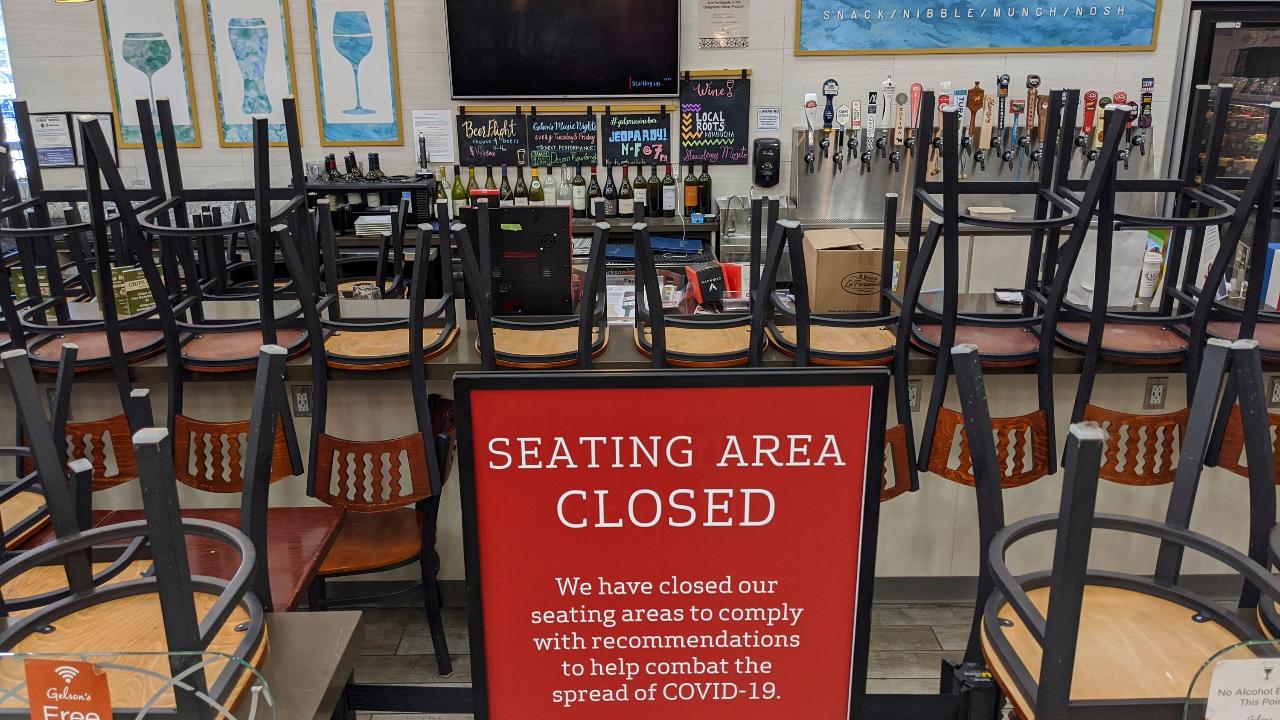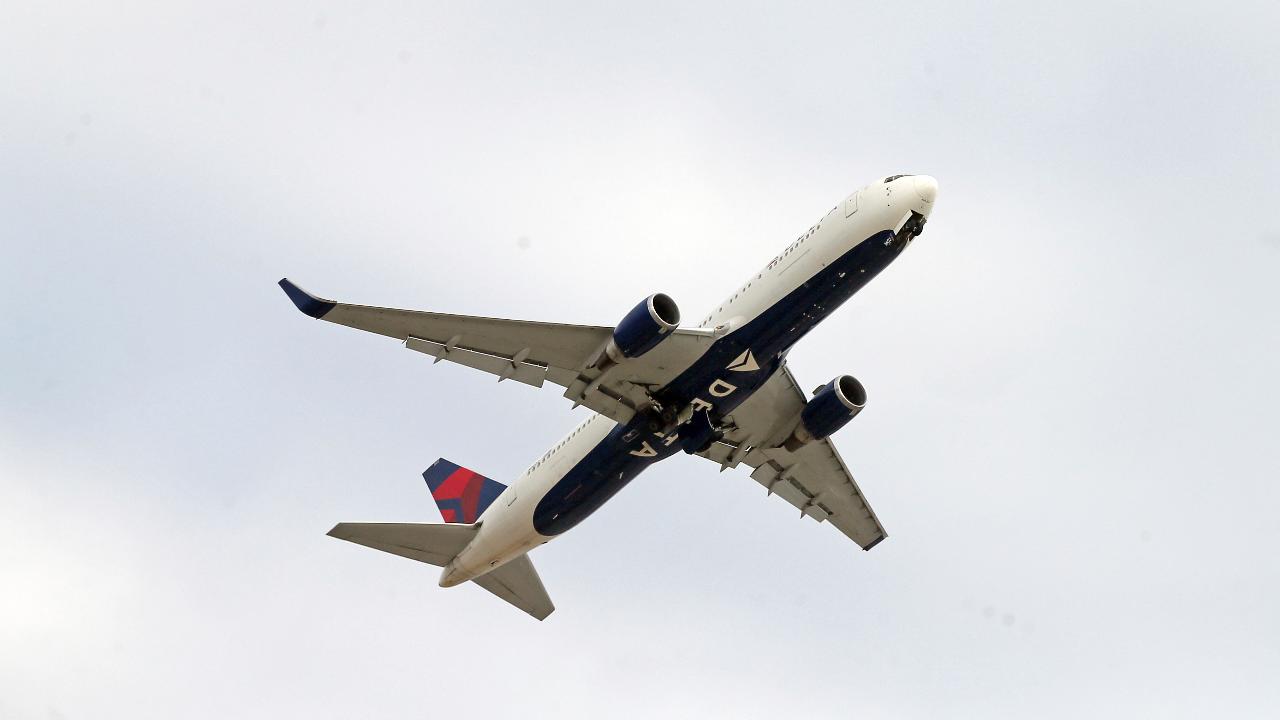Coronavirus -- With smart public health safeguards in place, let's consider how to get Americans back to work
The health, well-being and security of America’s 320 million citizens depends on a functioning economy
Get all the latest news on coronavirus and more delivered daily to your inbox. Sign up here.
The latest labor market report showed 3.3 million Americans signing up for unemployment benefits -- almost five times higher that any other month in history. Without a smart and medically-responsible reopening of the U.S. economy soon, that number could soar to 30 million unemployed.
There isn't enough gold in Fort Knox to pay prolonged unemployment benefits to this many workers and for the associated economic damage.
CORONAVIRUS HAS CHANGED OUR WORLD. HERE'S HOW TO KEEP YOUR JOB IN THE MONTHS AHEAD
This is why President Trump was right when he said Monday "we cannot let the cure be worse than the problem itself." The public seems to approve of that strategy as Trump's approval rating has soared to near 60 percent -- the highest of his presidency.
He has given Americans a sense of optimism that this lockdown can end in many parts of the country in weeks not months with the right and smart public health safeguards in place.
Not surprisingly, President Trump is under heavy criticism from some in the media and many Democrats in Congress for this strategy of trying to get the economy opened in some places by Easter. The New York Times has even recommended the opposite strategy of a nationwide economic lockdown -- which would cripple our economy with trillions of dollars of permanent losses.
WHAT SOCIAL DISTANCING CAN TEACH RETAILERS
Trump's strategy in no way minimizes the severity of this deadly "invisible enemy" as the president has called the coronavirus. But it does calibrate into our decision the devastation to the U.S. economy that is starting to surpass the mortgage and banking crisis of 2008.
The extraordinary lockdown measures pushed by governors Andrew Cuomo of New York and Gavin Newsome of California may be necessary in these heavily hit states. About half the infections have happened in New York, which has become ground-zero for the virus in America.
But other areas in the country, such as Idaho, Iowa and Utah, have fairly low caseloads. But, if imposed on a national basis and continued for an extended period, a lockdown would be a catastrophe for public health, the economy, and the American people.
The victims are not wealthy hedge fund managers losing a fraction of their portfolio; we’re talking about real Americans losing their life savings and their 401(k) plans they’ll depend on in retirement.
DESPITE CORONAVIRUS PANDEMIC COMPANIES ARE STILL HIRING
We’re talking about the small business owners having to tell their employees not to come back to the office and the single mother who’s held down a job and worked hard her whole life having to hitch a ride to the unemployment office.
The Wall Street Journal reports that the families that are being hit hardest by the paralysis of our economy are the lowest-income workers.
America is the business capital of the world with 26 million men and women owning and operating small and medium-sized firms. Millions will crash into bankruptcy with a prolonged lockdown -- regardless of the federal government's business loan rescue program. Revenues are the oxygen source of any small business and most have seen their customer base fall by half and even to zero through forced closures.
Because of the shutdown, Goldman Sachs forecasts GDP growth at negative for the first quarter of 2020 and declines of 10 to 20 percent in the next quarter.
Moreover, we are now seeing weakness in the U.S. commercial mortgage industry and the banking sector, which could cause a “domino effect” that could dwarf the negative impact of the Great Depression.
But this economic carnage is avoidable. The White House is already working on a plan with the best testing and screening possible in public places and workplaces, to keep the sick from spreading infection and responsible social distancing in the workplace. Senior citizens who are especially vulnerable can and should be quarantined.
GET FOX BUSINESS ON THE GO BY CLICKING HERE
Why not let businesses and workers make their own informed decisions if they want to get back to work -- especially in areas with few cases. No plan is perfect and there are risks and trade-offs with any strategy.
Instead of imposing a blanket-wide shelter-in-place on a national scale, Trump continues to reiterate that any decision regarding the reopening of the U.S. economy would be “based on hard facts and data,” and be “grounded solely in the health well-being and safety of our good citizens,” as any decision impacting the safety of Americans should.
There is no getting around it: the health, wellbeing and security of America’s 320 million citizens depends on a functioning economy. We have a $20 trillion highly-tunes economic engine -the envy of the world. That engine can't be shut down for months and then with the switch of an ignition switch powered back up.
Getting America back to work soon while taking all necessary measures to contain the coronavirus is a balanced and wise solution.
Ed Feulner is the former president and founder of the Heritage Foundation. Stephen Moore is a senior fellow at Heritage and is the co-author of “Trumponomics: Inside the America First Plan to Revive the American Economy.”




















